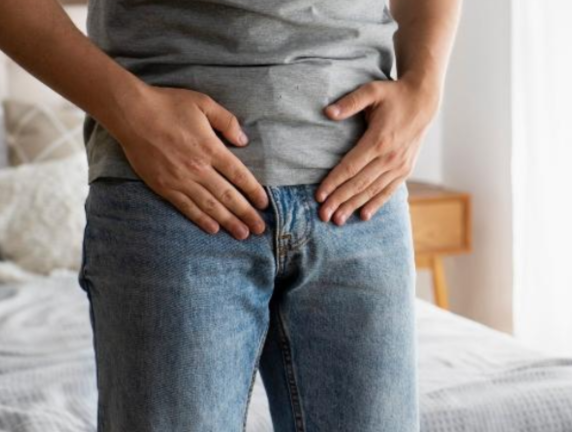Overview of Varicocele Causes, Symptoms, Treatment and Diagnosis
Varicocele is an expansion of the veins within the loose bag of skin that contains the testicles. These veins in the testicles are responsible for carrying oxygen-depleted blood. However, in some cases, the blood pools into the vein rather than circulating out of the scrotum. Varicocele is quite common among young adults. According to one study, every 10 out of 100 males face varicocele disease.
This disease usually happens during puberty and may grow more significantly over time. In many cases, young adults may face this issue on both sides of the scrotum, creating discomfort. Varicocele may result in decreased sperm production, poor testicular growth, or other problems that could impair fertility. It is best to treat Varicocele symptoms at an early stage to avoid any further issues.So let’s learn more about this condition, its symptoms, diagnosis, and management measures. Awareness regarding varicocele is important to ensure you are safe from the dangers of male infertility as you age.
What Usually Happens in The Case of Varicocele?
Every male reproductive system has a sperm storage area. The skin sac that houses the testicles is called the scrotum (testes). The testicles produce both testosterone and sperm. Sperm develops as it passes through the epididymis, a coiled tube behind each testicle. Semen is created during ejaculation when seminal fluid and sperm combine in the prostate. Semen exits your penis at the tip after passing through the urethra.
The average temperature in the scrotum is less than five degrees compared to that in the belly. The latter is caused by the pampiniform plexus, which cools blood in the testicular artery before it reaches the testicles by acting as a counter-current heat exchanger. Overheating of the testes can reduce sperm production and function when these veins grow, which may impact fertility.
What are the Symptoms of Varicocele?
There are no specific varicocele symptoms, but they can be a concern at a later stage of adulthood. In many cases, men may face slow growth of the left testicle during puberty. Similarly, infertility can be the result of Varicocele.
4 out of 10 men do face fertility problems at a later stage. Besides these, there are other signs and symptoms of varicocele that you must monitor
- Dull testicular pain in your scrotum.
- Swelling of your testicles.
- Shrinking of your testicles.
- Lump over the affected testicle.
Does Varicocele Fall Under the Dangerous Disease Category?
There could be different reasons why Varicocele can be dangerous. Here are some of the most common reasons listed.
Causing Infertility
According to studies, the number of men with infertility is relatively high, especially those who are facing Varicocele. A possible explanation for the connection between varicocele and infertility is the slightly elevated temperature in the scrotum. This may impact fertility as the testicle may produce fewer and lower-quality sperm.
Small Testicle Growth
If children or teenagers have varicocele, it has the potential to stop the growth of their testicles, which can lead to problems of infertility in the future due to underdeveloped testicles. To combat this risk, it is recommended for teenagers to get their testicles measured annually to ensure they are safe from varicocele.
What is the Diagnosis for Varicocele?
Varicocele diagnosis involves a self-test of the scrotum or a medical examination. The aim of this test is to determine whether one of the testicles is significantly larger than the other.
When you visit the urologist, you will undergo the examination for varicoceles. Your urologist may ask you to inhale deeply, hold it, and press down while feeling the area above the testicles. This method is referred to as the "Valsalva manoeuvre." It enables your urologist to locate any vein enlargements.
Though it is rare, there have been cases where men over 40 have had the onset of a varicocele. So going through screening tests is usually recommended. Furthermore, a single right-sided varicocele is uncommon. You should get tested if this happens to rule out any strange causes.
Different Tests to Confirm Diagnosis
Your healthcare expert will undertake a physical examination to get the correct diagnosis for varicocele disease. Some of the commonly used diagnostic tests are mentioned below.
- Pelvic Ultrasound: A non-invasive imaging exam called a pelvic ultrasound allows your doctor to see the veins in your testicles up close. Pelvic ultrasound is used frequently to test when diagnosing varicoceles.
- Semen Analysis: Semen analysis involves sending collected semen to be lab-tested, where technicians will check for sperm presence and general health. If the medical professional believes that your Varicocele is affecting your fertility, they will perform a semen analysis.
- Blood Test: Your healthcare professional will take a blood sample with a tiny needle during a blood test. Your blood sample will be sent to a lab so that technicians can measure hormone levels. The hormone levels are also used to understand the effects of varicocele on your fertility.
Treatment for Varicocele
Treatment for Varicocele depends on the severity of the condition. Some of the most commonly used treatment options are mentioned below.
- No Medical Intervention. If your Varicocele doesn't affect you or interfere with your ability to conceive, you might not need treatment. Treatment is only recommended to patients with disruptive symptoms or other medical complications caused by the condition.
- Change in your Daily Routine: You should make some changes to your regular lifestyle. Wearing tighter-fitting knickers or a jockstrap can help reduce symptoms when working out or standing for extended periods. You should talk to your doctor before adding these items to your wardrobe as they need to be appropriately fitted to your body for the supportive garments to be helpful. Doctors will in most cases, check the fit of these garments before allowing you to wear them.
- Applying Ice: Apply cold packs or ice on your scrotum to ease the pain and discomfort. Avoid putting ice right on your skin. Use a towel to cover cold packs or ice. Use ice for a maximum of fifteen minutes at a time. If your pain is increasing over a period, it is necessary that you inform your doctor as it may require other medical treatment.
- Varicocele Surgery: A surgeon may recommend varicocelectomy surgery to treat severe varicoceles that cause severe pain or interfere with fertility. During the surgery, the afflicted veins are cut and sealed off to reroute blood flow to the scrotum's other healthy veins. This surgery is highly effective and is able to completely treat the condition with minimal risks.
Conclusion
Varicocele may not be the most common problem among men, but it is one of the issues they face that can significantly disrupt their quality of life and cause physical pain. Undergoing the annual test and keeping up with Varicocele pain symptoms will help you overcome the health problem. Whether you are facing swelling, pain, or any other problem in your testicle area, it is best to connect with your doctor.
To get the best medical treatment for varicocele, check out MASSH. We offer dedicated treatment and prevention for varicocele that is effective and efficient. Thanks to our functional medicine and preventative care approach, we can help you adopt a healthy lifestyle that reduces your risk of varicocele. Check out our website to learn more about varicocele treatment at MASSH or visit us today to consult with our specialists.
Source: https://massh.in/


Comments
Post a Comment